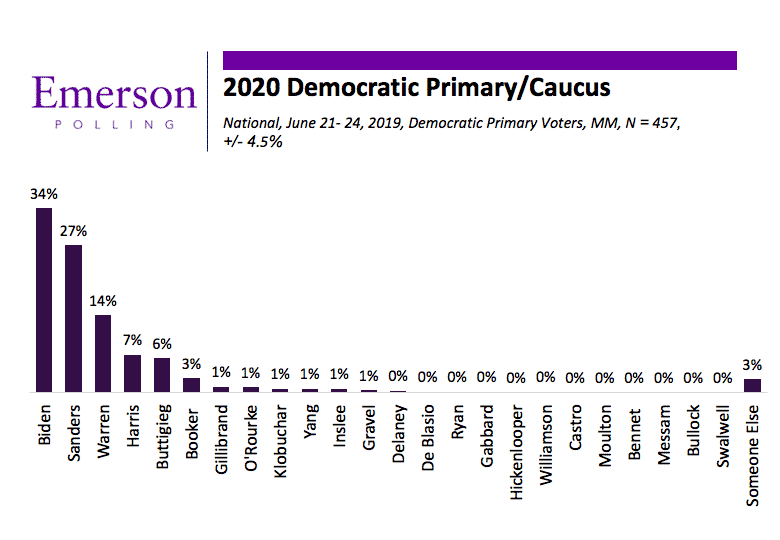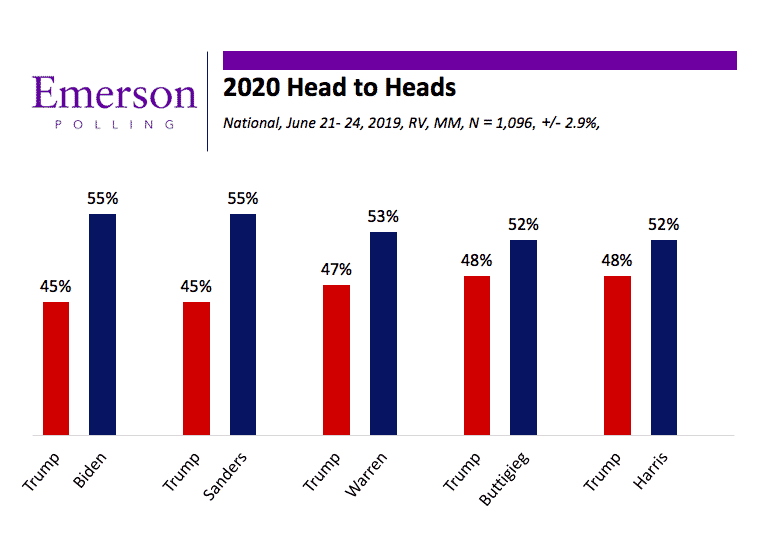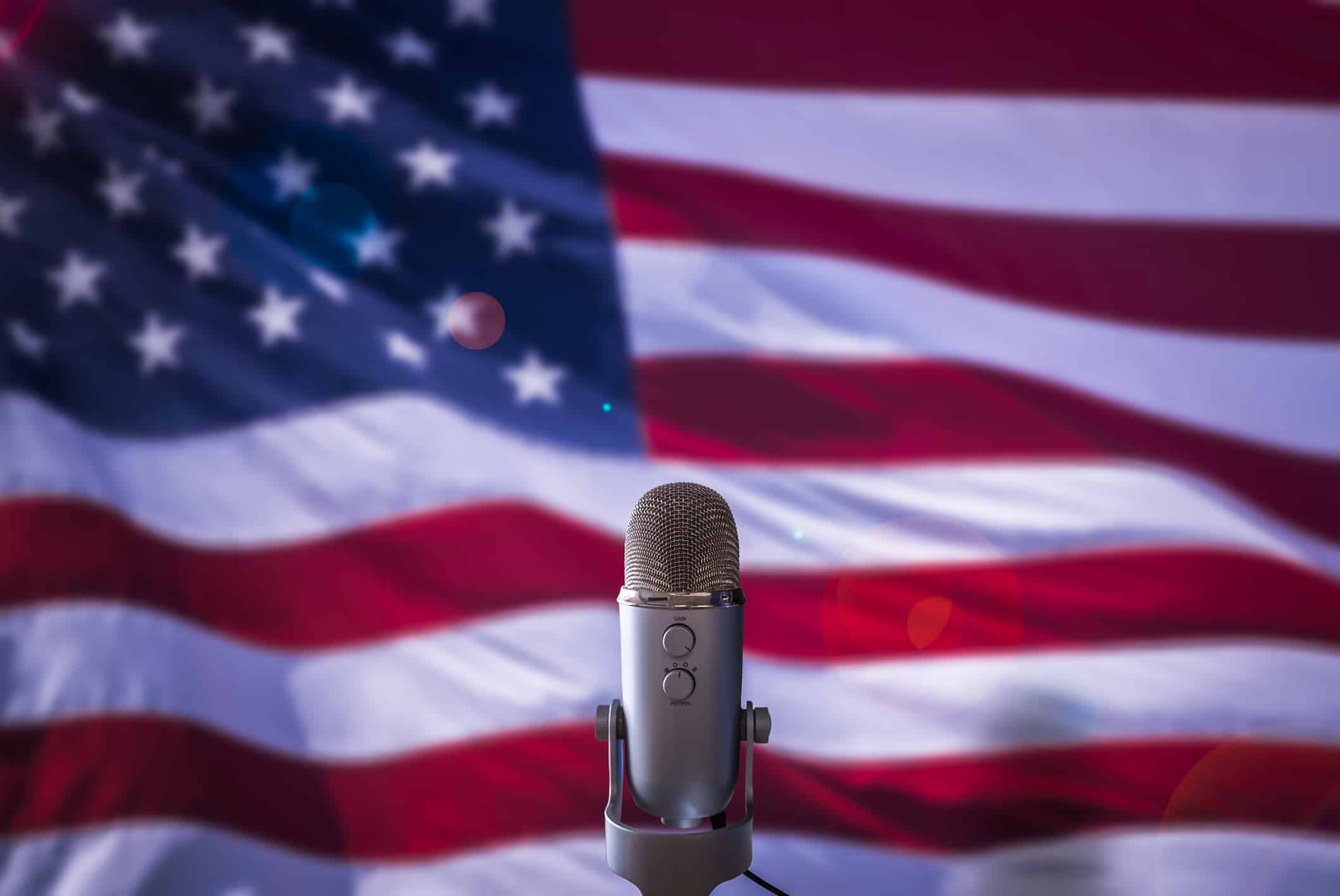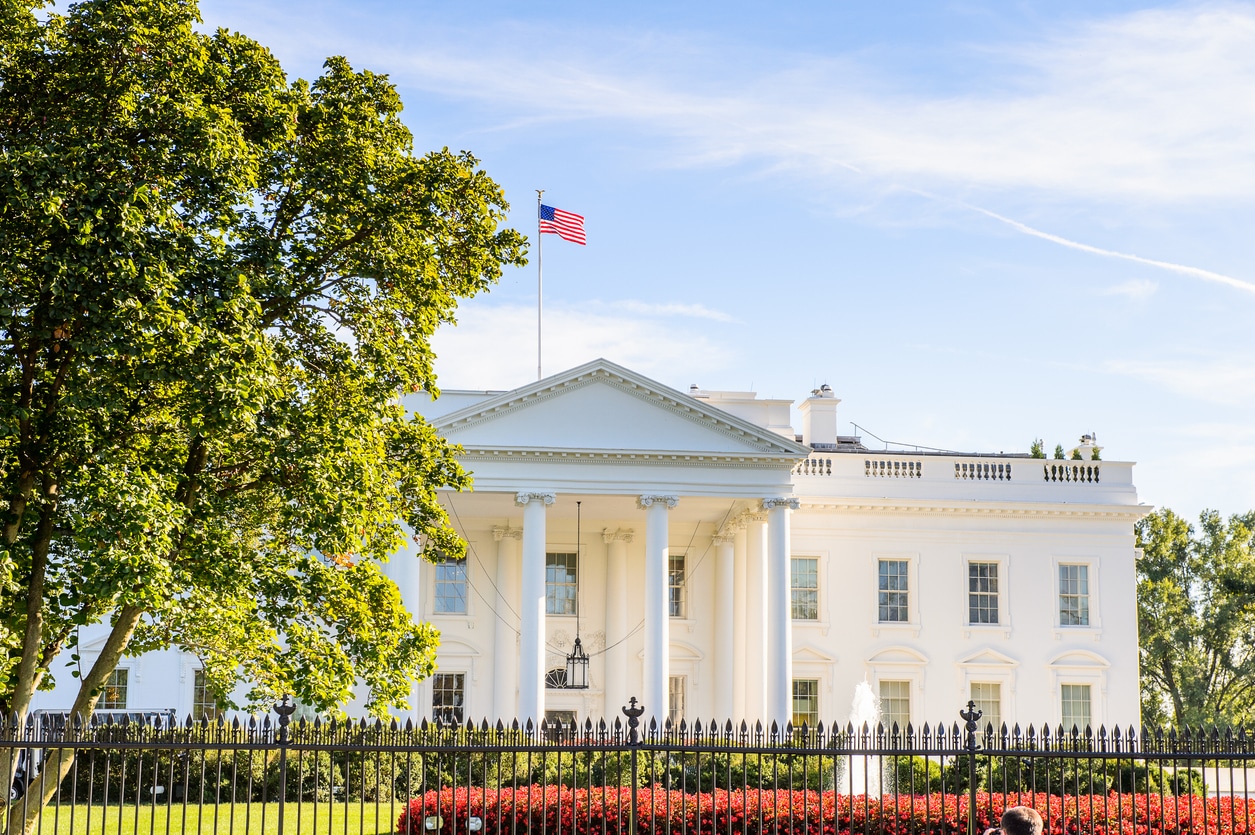A new national poll finds the Democratic field coming into focus as the candidates prepare for this week’s first debates. Joe Biden continues to hold his announcement bounce, and has gained a point since May – now holding 34% of the vote, followed by Senator Bernie Sanders who moved up 2 points to 27%. Senator Elizabeth Warren has broken away from the rest of those running, into 3rd place – improving from 10% of the vote up to 14%. Senator Kamala Harris comes in fourth with 7%, Mayor Pete Buttigieg is in fifth with 6%, and Senator Cory Booker follows in sixth with 3% of the vote. All other candidates poll at 1% or lower. The data was collected June 21-24, and has a margin of error of +/-4.5% for the Democratic primary.
Voters are excited in the lead up to the first Democratic Debates, being held on June 26 and 27th, with 72% saying they plan on tuning in to watch the 20 candidates. The most interest lies with Democratic primary voters, of which 85% plan to watch.

There is still room for movement within the primary race, as a majority of Democratic primary voters, 56%, said there is a chance they could change their mind and vote for someone else. Spencer Kimball, Director of the Emerson Poll, points out that, “similar to our other polls, Biden and Sanders voters are the most loyal with 50% to 55% saying they are set on their candidates. Comparatively, 33% of Warren, 18% of Harris and 17% of Buttigieg voters say they will stick with their current choices, this suggests that about 30% of the Democratic electorate are spoken for and another 30% leaning toward the top two candidates as of now leaves a narrow lane for another candidate to grab a plurality of the vote.”
Looking at demographics, Sanders continues to do the best among young voters with support of 38% of 18-29 year olds; Warren follows with 22%, while 21% support Biden, and 7% favor Harris and Booker. Among 30-49 year olds, Biden leads with 30%, followed by Sanders with 29%, Warren with 11%, and Harris with 8%. Among 50-64 year olds Biden also leads with 39%, followed by Sanders with 24%, Warren with 13% and Buttigieg with 8%. Finally, among those over 65 years old Biden leads with 52%, followed by Warren at 12%, Sanders at 11% and Buttigieg at 10%.
Among African-Americans, Biden holds a strong lead with 60% support, followed by Harris and Sanders with 12%, and Warren with 6%. Among white voters, Biden received 28% support followed by Sanders with 27%, Warren with 16% and Buttigieg with 11%. And among Hispanic or Latino voters, Sanders leads with 44%, followed by Biden with 26%, Warren with 11% and Harris with 7%.
President Trump maintains a steady approval rating of 43%, while his disapproval has dropped a point since last month to 48%. Their continues to be a gender divide regarding the President: among males 47% approve and 47% disapprove, as compared to females where 49% disapprove and 39% approve. Trump continues to hold a strong lead in the primary match-up against former Governor Bill Weld – 83% to 17% (n=407, +/- 4.9%).
In head to head match-ups, Trump trails all his Democratic opponents with Biden and Sanders holding 10 point leads 55% to 45%, Warren leading by 6, and Buttigieg and Harris leading by 4.

A majority of voters, 57%, said they think the current Presidential primary system should stay the same, with groups of states holding their primary or caucus on different days over the course of several months. 43% would like a change, advocating for a single day in which a national primary is held for all states. The support for the system staying the same varied slightly across all four regions of the country, with the greatest support in the Midwest at 65% and least in the Western states at 53%
Recently, the Democratic frontrunner Joe Biden changed positions on the Hyde Amendment which prohibits federal funds from being used to fund abortions with some exceptions. Overall 55% of voters support the Hyde Amendment, 45% oppose. Among Democrats, 43% support and 57% oppose, as contrasted to 75% of Republicans who support, and 25% who oppose the amendment. However, there is no gender divide on this issue, with 57% of men and 54% of women in support.
Overall, voters have not acclimated to a candidate who describes themselves as a Democratic Socialist – with 43% saying they would not vote for a candidate with this label, 30% of voters indicating they would vote for a Democratic Socialist,, and 27% unsure. Among Democratic primary voters, 56% said they would consider voting for a Democratic Socialist, 15% said they would not, and 29% are unsure. “The problem for Sanders and others who describe themselves as Democratic Socialists is that Independents are opposed, 42% to 26%, and that might be a problem for a Democratic nominee to overcome in a general election,” said Kimball, Director of the Emerson Poll.
The most important issue for voters is the economy at 33%, ranking as the top issue for all voters regardless of political affiliation. Healthcare is the second most important issue for voters at 21%, followed by immigration at 12% and social issues at 11%. Impeachment of President Trump was the least important of the 9 issues presented with only 2%. Republican voters differ on immigration with 20% saying it was most important to their vote, as compared with 9% of Independents and 6% of Democrats. On the flip side, Democrats care more about healthcare as an issue, with 26%, as compared with Independents at 19%, and Republicans at 18%. The environment is most important for 9% of Democrats and Independents, but for only 2% of Republicans. Independents differ on the issue of education, with 7% saying it was most important, while only half of that amount of Democrats and Republicans identify it as most important.
Caller ID
The national Emerson College poll was conducted June 21-24, 2019 under the Supervision of Professor Spencer Kimball. The sample consisted of registered voters, n=1,096, with a Credibility Interval (CI) similar to a poll’s margin of error (MOE) of +/- 2.9 percentage points. The data was weighted by age, gender, region, income, and education based on 2016 turnout modeling. It is important to remember that subsets based on gender, age, party breakdown, ethnicity and region carry with them higher margins of error, as the sample size is reduced. Data was collected using both an Interactive Voice Response (IVR) system of landlines only (n=697) and an online panel provided by Amazon Turk (n=399).





